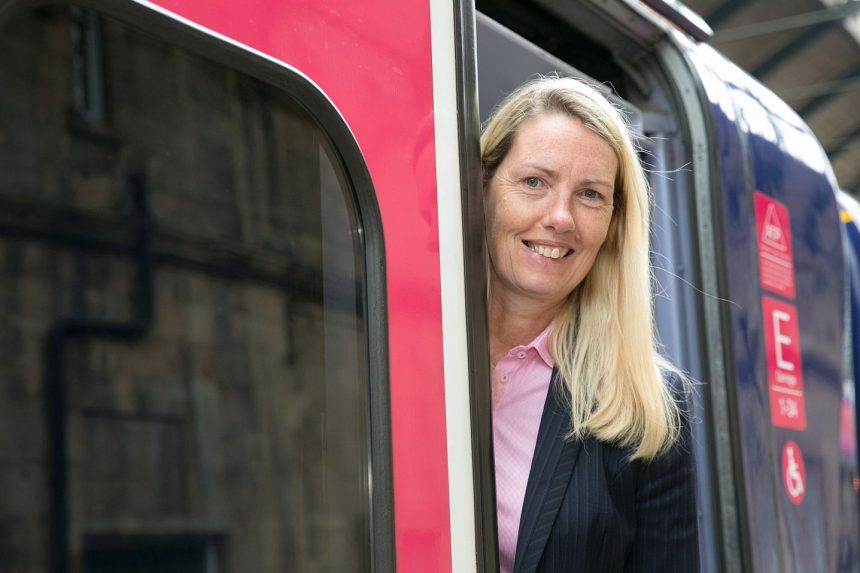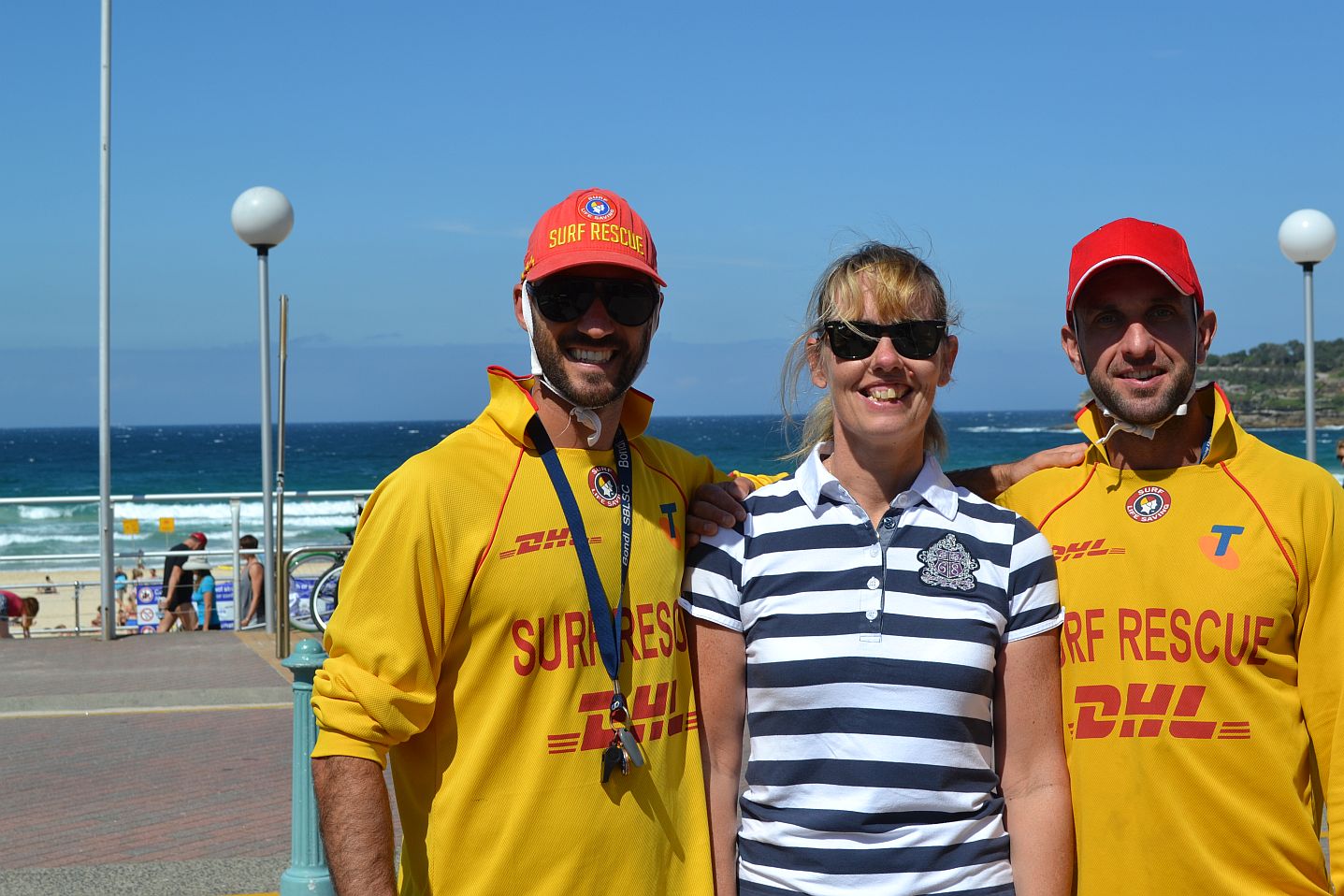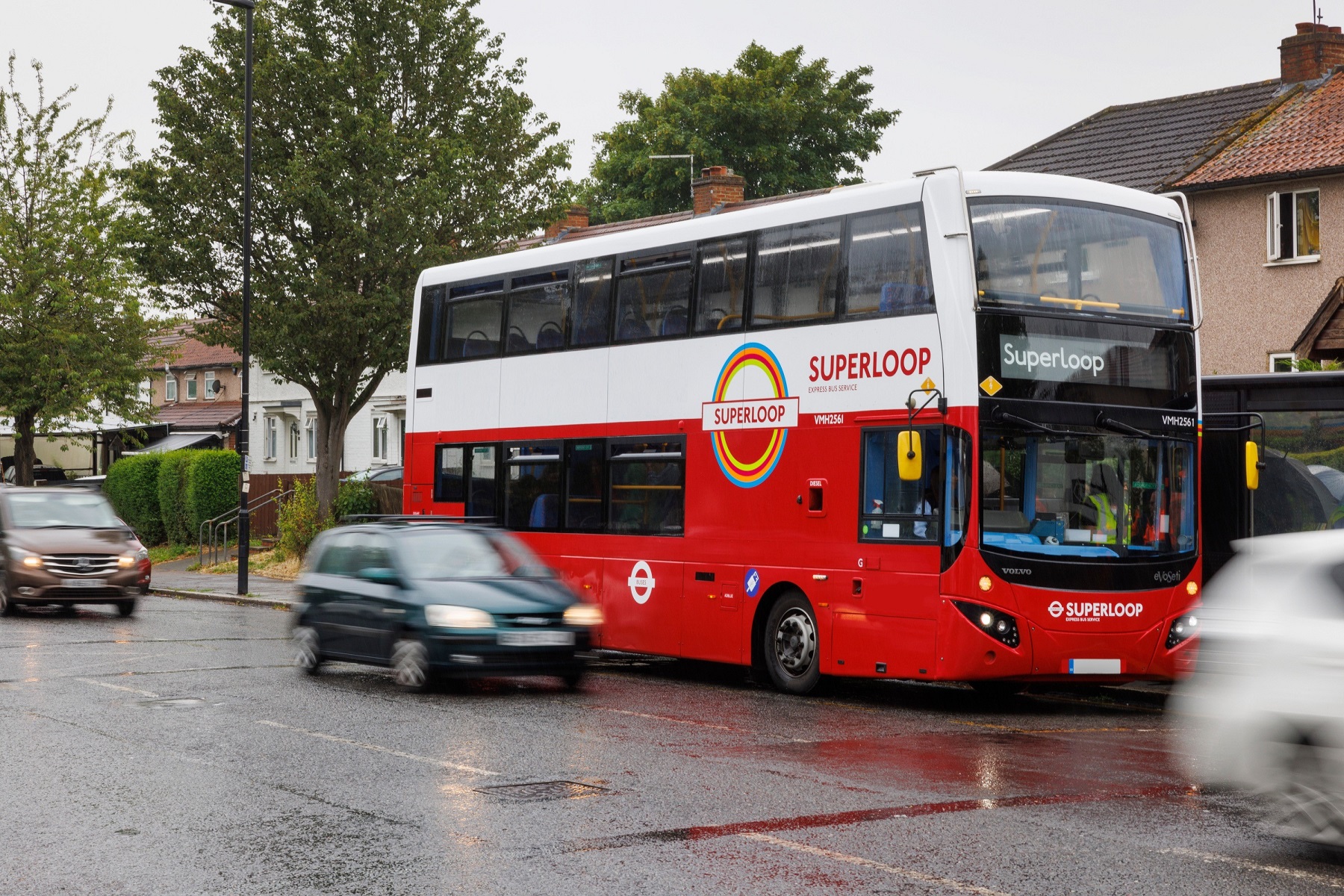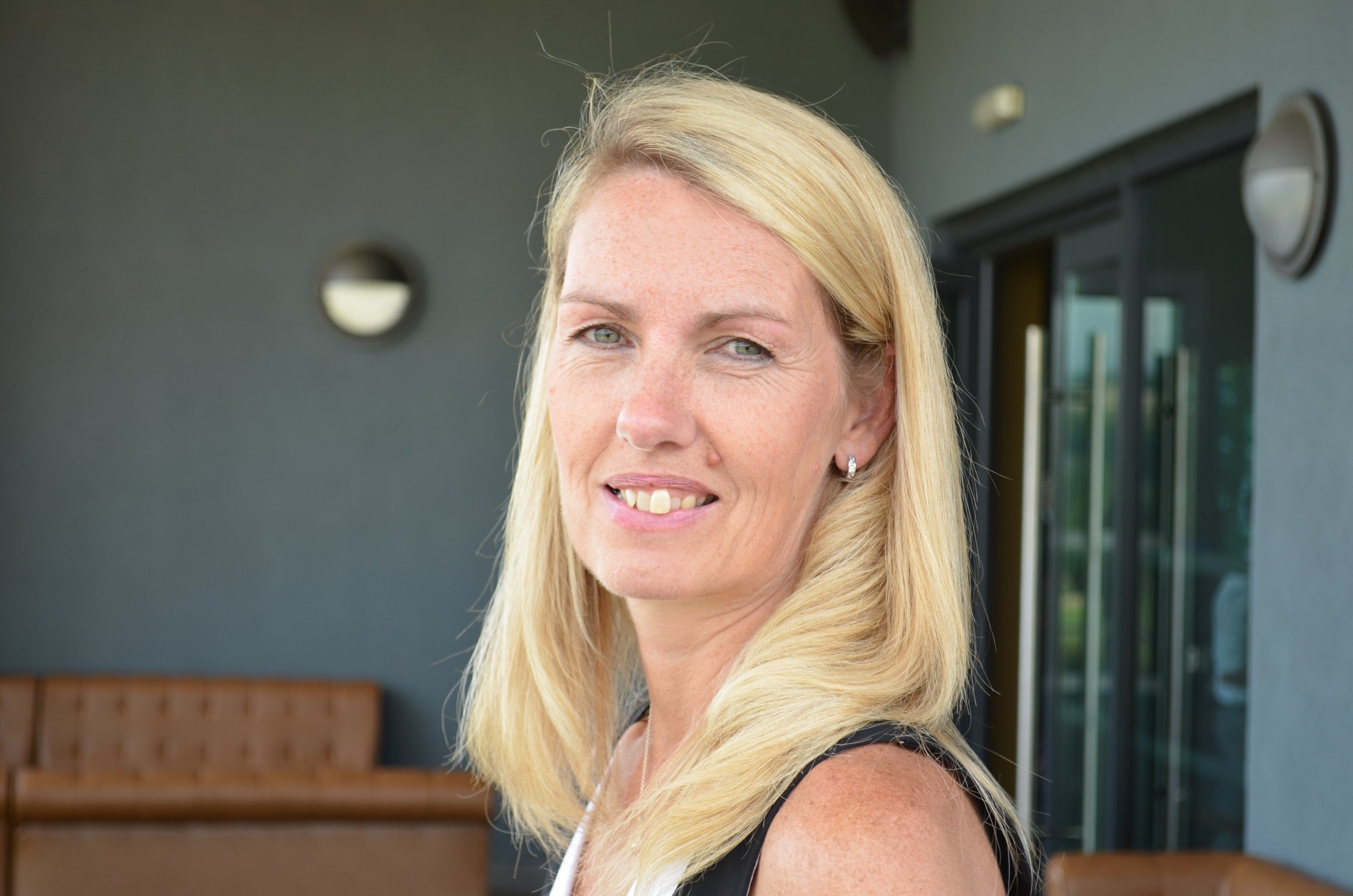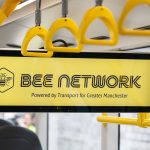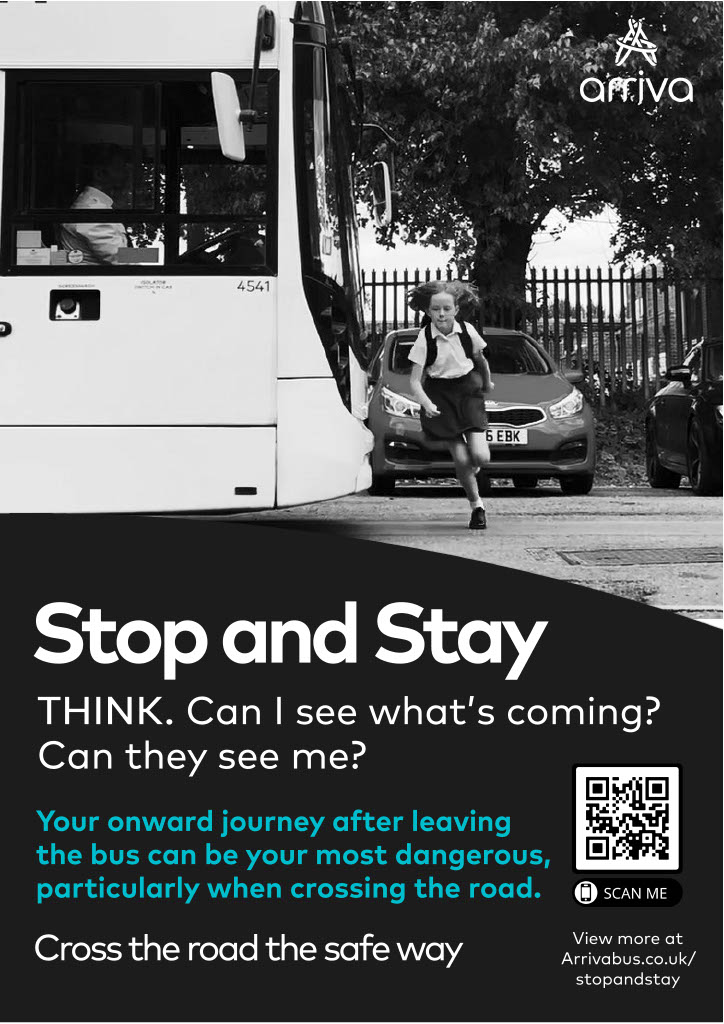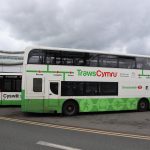Louise Cheeseman officially retired from her position as Director of Buses at Transport for London (TfL) on 3 January, to be replaced by the current Interim Chief Operating Officer Glynn Barton.
Louise became a household name in the bus industry when she took up the TfL role, having joined the government body in 2021 to steer it through unprecedented challenges in the wake of COVID-19, and eventually founding the Women in Bus and Coach (WiBC) initiative in 2023.
From rails to road
Louise applied for a career in rail during a time when she found herself as a single mother of two daughters looking for any way to help them get the education they deserved. It would be a cyclical one, starting and ending in her hometown of Hull.
When she made it to assessments in Sheffield, Louise was the only woman in a group of 24 men. She recalls the intensity of that day: “We had to go through various psychometric tests, English and mathematics assessments, and if you didn’t reach the required standard, you were asked to leave. In the end, there were only three men left, as well as me. I’ll never forget the moment when I was asked to go in for interview.”
That interview was memorable for all the wrong reasons. The invigilator, a representative of an external recruitment agency, acknowledged that Louise had come top in the assessments and met all the criteria to be a train guard… so, naturally, refused to give her the job.
“He told me it wasn’t a role for a lady,” Louise says. “But one thing many people will know about me is that I’m dogged. If I get the bit between my teeth, I go for it. After a 20-minute debate, he caved in, telling me he would give me three months and that I wouldn’t be able to last that long. The rest, obviously, is history.”
Louise is happy to report that, by and large, attitudes have since moved on from those days. Even so, she recalls being spurred on in her career by it, facing difficulties like lack of appropriate uniform options to an absence of women’s toilet facilities head on.
“I was absolutely determined to get my daughters to university, and if that’s what I had to do, that’s what I had to do,” Louise explains. “But it also gave me an amazing career I could never have written, and I hope it has also proved to my two daughters to never use the excuse of being a woman to not do what you want to do, whether it be a hobby or a career.”
During her time as a guard on local rail services at Hull Paragon Interchange, Louise recalls looking enviously towards the Hull Trains services to London, with their larger size and dapper staff members. Little did she know then that she would eventually become Managing Director of the business; but that sight most likely seeded a craving for career progression.
After seven years working as a guard, Louise applied successfully for a job as a conductor team manager at Sheffield. Two years later she became a safety standards manager in York, and ultimately an operational delivery manager in the Northeast of England, where she had responsibility for Newcastle, Carlisle, and Darlington services along the east coast.
But the real catalyst in her future came one Monday evening when she received a call from her Director informing her that the Docklands Light Railway (DLR) was in the midst of enhancements and extensions in anticipation for the 2012 Summer Olympics, and needed an extra hand. “The person responsible for delivering on those enhancements had gone off on long-term sickness, and someone was needed quickly to go down there,” she explains.
Louise initially refused. She had never been to London, and did not want to leave her family behind. In the end, however, she was persuaded to go. “It became one of those moments when I didn’t really have a choice,” she says. “But it was one of the best things that could have happened to me. It stretched my boundaries and going to London was an amazing opportunity. It was a challenge, but opened my eyes to what was possible in terms of career opportunities.”
After four months and the conclusion of the 2012 Paralympic Games, the contractors and consultants were gone. Louise was asked to stay and work for DLR. What started as a four-month secondment turned into what she describes as four of the best years of her career, and would see her travelling to Sydney and Dubai to support the Sydney Light Rail bid and Dubai Metro enhancements. “I did things and saw things I never would have dreamed possible otherwise,” she says.
Another four years passed, and Louise’s career began its first steps towards the world of buses and local transport with a two-and-a-half-year spell as Director of Service Delivery at Manchester Metrolink. While there, the Managing Director of Hull Trains reached out to mention that there was a vacancy for the position of Service Delivery Director for Hull Trains. Six months later, Louise was offered the Managing Director role, completing the circle. Her tenure saw business expansion and fleet growth before COVID-19 sent the business into hibernation. “It was a fantastic business and one of the proudest moments of my career, topped only by the moment I was appointed Director of Buses for TfL,” she says.
On the cusp of something amazing
It was a recruiter that called Louise initially to gauge her interest in the role of Director for Buses in 2021. Louise thought she wouldn’t qualify, owing to her expertise up to that point being almost exclusively in rail. But what she did have was a passion for customers and an entrepreneurial spirit that had turned businesses around, helped people think differently about transport, and made a real difference for women in the industry. Those skills, she says, are transferable between almost any leadership role.
“I have always said my analogy of a leader at that level is that you are like the conductor of an orchestra. The conductor isn’t an expert in all the individual instruments — they ensure that they play together to create an amazing tune.
“Your job as a leader is to make sure you support your own experts and that you create a clear path for them, working together on an understanding of what the priorities are and what each person’s role plays in that plan.
“It’s also about having empathy and understanding for people and understanding how they want to be led and supported, giving them the tools they need to deliver.”
But it would become one of the hardest transitions into a new role that Louise ever experienced. She recalls arriving on day one at Palestra House, the offices of TfL, with high expectations, only to find an almost-deserted 10th floor. Nonetheless, she persevered, and quickly led change. The London bus network was experiencing a shortage of some 2,000 drivers at the time, and patronage was stuttering following the height of the pandemic, on top of a decline that traced its beginning to 2016.
“The biggest problem TfL had experienced before COVID-19 was managing the number of people that wanted to travel,” says Louise. “There had been an expectation that they would come back. But they didn’t. We had to think differently.”
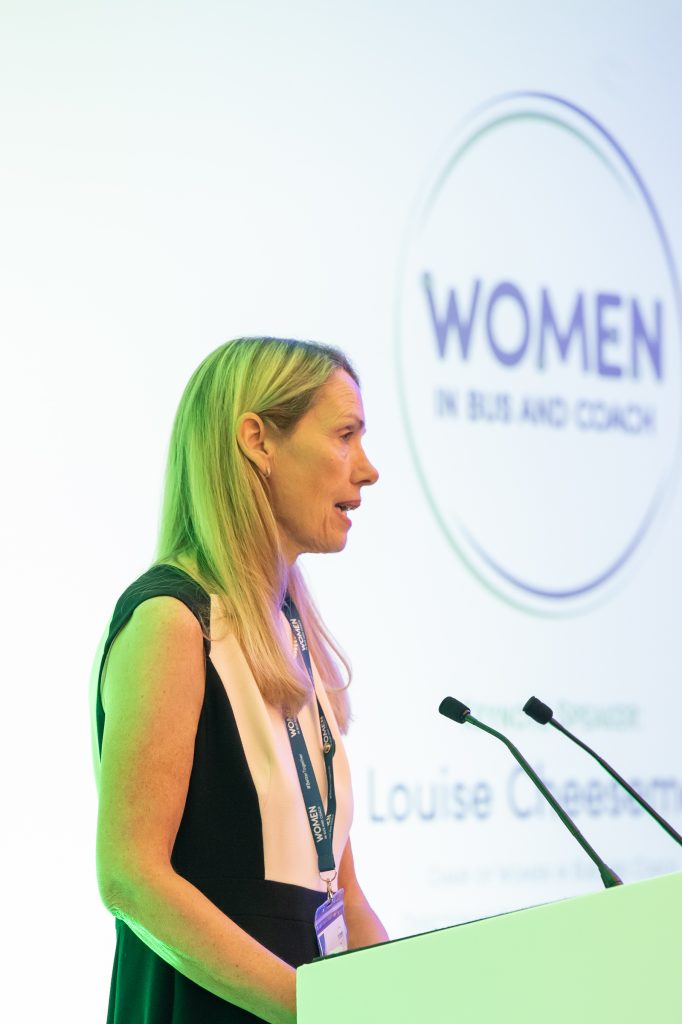
Louise had already championed the fight for women in the transport industry through Women in Rail. Over half the drivers at Hull Trains were women by the time Louise left the company — something unheard of within the industry. Alongside Kerri Cheek, leader of TfL’s safety strategy, Louise would now apply that passion to the bus industry, where she felt the problem was even bigger.
“Everybody talks about this resource shortage. But if you look at the data, it will tell you how few women are joining the industry. We need to make it more attractive, and the answer is on our doorstep. That could be the golden thread to creating a resource that matches our customer demographic.”
Louise suggests that can start from the grassroots, finding people to demonstrate that degrees and qualifications are a nice to have, but not an essential, for many jobs. Work must be done to make the coach and bus industry look attractive to talent from all areas. “It’s not well enough portrayed as something that can offer such opportunities for people. We need to do that. That’s one of the reasons why I came into the bus industry. I thought it was an opportunity to make a difference.
“Coach and bus can offer so much to people coming out of school, to people looking for a career, or people who simply want a job. If we make rosters appealing to people that can pick it up and down depending on personal circumstances, it will make this an industry that can embrace everyone, no matter who or what their background is.”
That work has already begun with WiBC, where manufacturers are being challenged on how new models can accommodate the ergonomic needs of both men and women, and where rostering, uniforms, and hygiene facilities are being scrutinised.
In addition to WiBC, Louise also reflects proudly on the introduction of Superloop during her tenure, an express service distinct from the traditional red bus offerings in London, delivered in a relatively short space of time. “To suddenly create something that could attract people to leave their cars at home, sitting down with manufacturers and operators and expertise in TfL to pull together Superloop and what that looked like in such a short period of time was completely different and was something that has taken off well,” she says. “We’ve seen patronage rise and interest in people who normally wouldn’t use a bus.”
Leaving a legacy
Now that she is retired, Louise plans to devote more of her time to WiBC and to push for the growth of the coach and bus industry in which she has become so embedded. As part of that, she hopes she can be of support to businesses in a consulting role and to assist the industry further in a non-executive directorial or advisory capacity. She also plans to go exploring in her new motorhome.
Either way, she says she’ll always be there for those looking for support or advice. “I want to have left a legacy that proves to people that it doesn’t matter what your background is, the only person stopping you from reaching whatever level you think success looks like is you,” she says. “I hope that anytime anyone has reached out to ask my advice on careers or development that I have always given them that time and reassurance that they are worthy of pushing forward with their career.
“I also hope that whatever my management and leadership style has been, it has appealed to people and proves that there is something other than academic ability that helps you to become a successful leader.”













